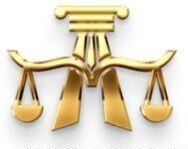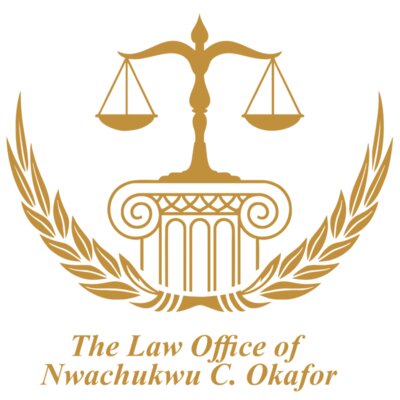Best Military Divorce Lawyers in Nigeria
Share your needs with us, get contacted by law firms.
Free. Takes 2 min.
Free Guide to Hiring a Family Lawyer
Or refine your search by selecting a city:
List of the best lawyers in Nigeria
About Military Divorce Law in Nigeria
Military divorce in Nigeria refers to the dissolution of marriage where one or both parties are serving members of the Nigerian Armed Forces. This type of divorce comes with unique circumstances, given the distinct lifestyle and legal obligations associated with military service. The legal process of military divorce aims to address issues that arise due to the nature of military deployment, housing, and benefits. It's important to note that while the general laws of divorce apply, certain protections and rules may specifically affect military personnel and their families.
Why You May Need a Lawyer
While anyone undergoing a divorce may face legal complexities, military personnel and their spouses encounter unique challenges that often require specialized legal assistance. Here are some common situations where you may need a lawyer:
- Understanding Military Benefits: Divorcing spouses of military members may need guidance on how to divide retirement benefits and pensions.
- Child Custody during Deployment: Legal advice may be required to navigate custody arrangements when one parent is deployed.
- Residency and Jurisdiction Issues: Determining the appropriate jurisdiction can be complex, especially if the military family has moved frequently.
- Compliance with Military Policies: Adhering to the unique legal requirements and timelines stipulated by military regulations.
- Protecting Rights: Ensuring that both the military member and the spouse's rights are upheld in the divorce proceedings.
Local Laws Overview
Military divorce in Nigeria is governed by the Matrimonial Causes Act, applied through the context of both military law and civil law. Key highlights include:
- Jurisdiction: Typically established where either party resides or where the military member is stationed.
- Service Constraints: Military duties can delay court proceedings, and military protection under the law may adjust deadlines.
- Division of Assets: Special considerations apply to military pensions and benefits, which are subject to specific legal treatment.
- Child Custody and Support: Courts consider the best interests of the child(ren), balancing the duty of the military parent with family needs.
Frequently Asked Questions
How is military divorce different from civilian divorce?
Military divorce includes additional legal considerations related to military service, such as jurisdiction issues, division of military pensions, and deployment impacts on custody.
Can a military divorce be filed in civil courts?
Yes, military divorces are typically filed in state or federal courts but are governed by specific military protections and provisions.
How does deployment affect child custody in a military divorce?
Deployment can complicate custody arrangements, and courts may implement special provisions to maintain the child's welfare while respecting the service member's duties.
What happens to military benefits after divorce?
Military spouses may retain certain benefits, like healthcare and commissary access, depending on the duration of the marriage and service, often reviewed under the Uniformed Services Former Spouses' Protection Act.
What is the best way to handle spousal support in a military divorce?
It's advisable to consult a lawyer to ensure fair calculation and agreement on spousal support, taking into account both parties' financial situations and obligations.
Do military divorce laws vary by state in Nigeria?
While the overarching framework is consistent, there can be variations in the state application of divorce laws, particularly on issues like property division and support.
How can mediation help in a military divorce?
Mediation can provide a less adversarial approach, often helping both parties reach a mutual agreement efficiently and with less emotional stress.
Is a military lawyer sufficient for handling a divorce?
Military lawyers can offer guidance, but it is often beneficial to hire a civilian lawyer familiar with military divorce issues for comprehensive legal representation.
Can a spouse receive part of the military member's retirement pay?
Yes, spouses may be entitled to a portion of the military retirement pay, depending on the length of the marriage and the member's service during the marriage.
How important is timing in filing a military divorce?
Timing can affect jurisdictional choices and strategic considerations regarding benefits, so consulting legal counsel early is advisable.
Additional Resources
Here are some resources and organizations that can provide additional support for those dealing with military divorce in Nigeria:
- Nigerian Bar Association (NBA): Can connect you with lawyers specializing in family and military law.
- Department of Legal Services: Offers guidance and support for military personnel.
- Armed Forces Chaplaincy: Provides counseling services for military families.
- Local Legal Aid Clinics: Offer consultation and potential representation for low-income individuals.
Next Steps
If you are considering or currently undergoing a military divorce in Nigeria and need legal assistance, consider the following steps:
- Research: Gather information about the process, relevant laws, and your rights.
- Consult a Lawyer: Reach out to a lawyer with experience in military divorce to discuss your situation and get personalized advice.
- Understand Military Protocol: Ensure compliance with any specific military guidelines or procedures.
- Document Everything: Keep detailed records and documentation to support your case.
- Explore Support Systems: Utilize available resources, including counseling and support groups.
Lawzana helps you find the best lawyers and law firms in Nigeria through a curated and pre-screened list of qualified legal professionals. Our platform offers rankings and detailed profiles of attorneys and law firms, allowing you to compare based on practice areas, including Military Divorce, experience, and client feedback.
Each profile includes a description of the firm's areas of practice, client reviews, team members and partners, year of establishment, spoken languages, office locations, contact information, social media presence, and any published articles or resources. Most firms on our platform speak English and are experienced in both local and international legal matters.
Get a quote from top-rated law firms in Nigeria — quickly, securely, and without unnecessary hassle.
Disclaimer:
The information provided on this page is for general informational purposes only and does not constitute legal advice. While we strive to ensure the accuracy and relevance of the content, legal information may change over time, and interpretations of the law can vary. You should always consult with a qualified legal professional for advice specific to your situation.
We disclaim all liability for actions taken or not taken based on the content of this page. If you believe any information is incorrect or outdated, please contact us, and we will review and update it where appropriate.
Browse military divorce law firms by city in Nigeria
Refine your search by selecting a city.

















